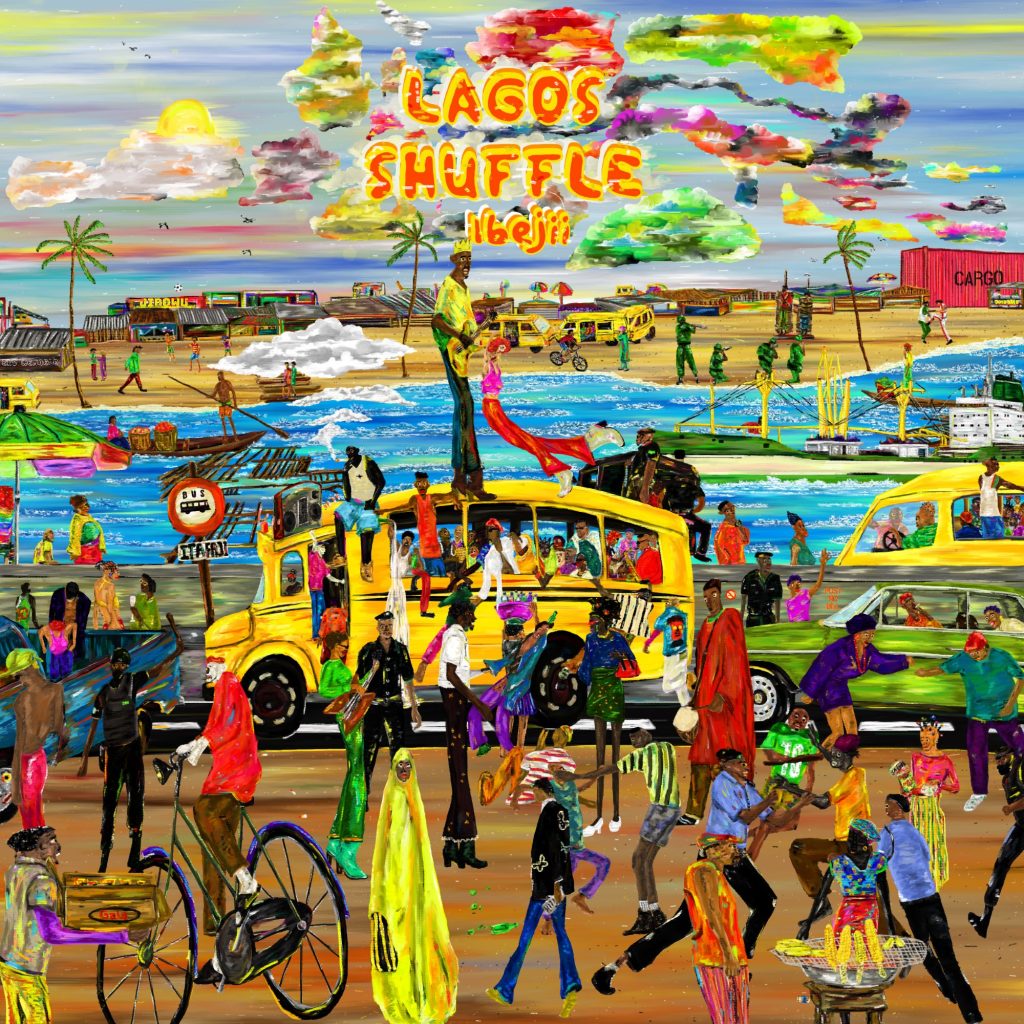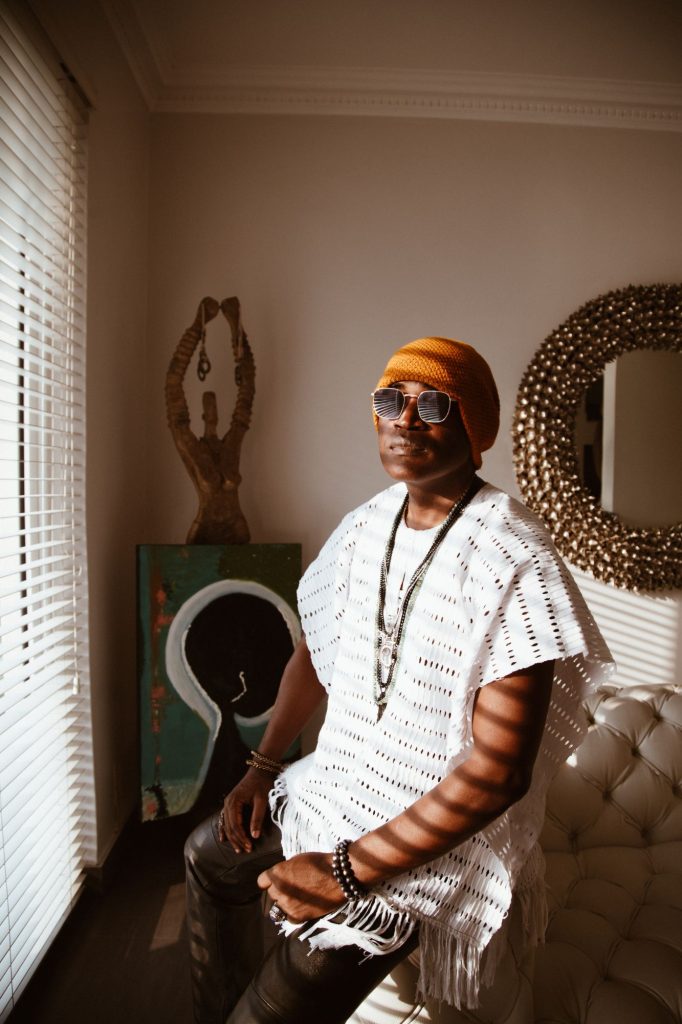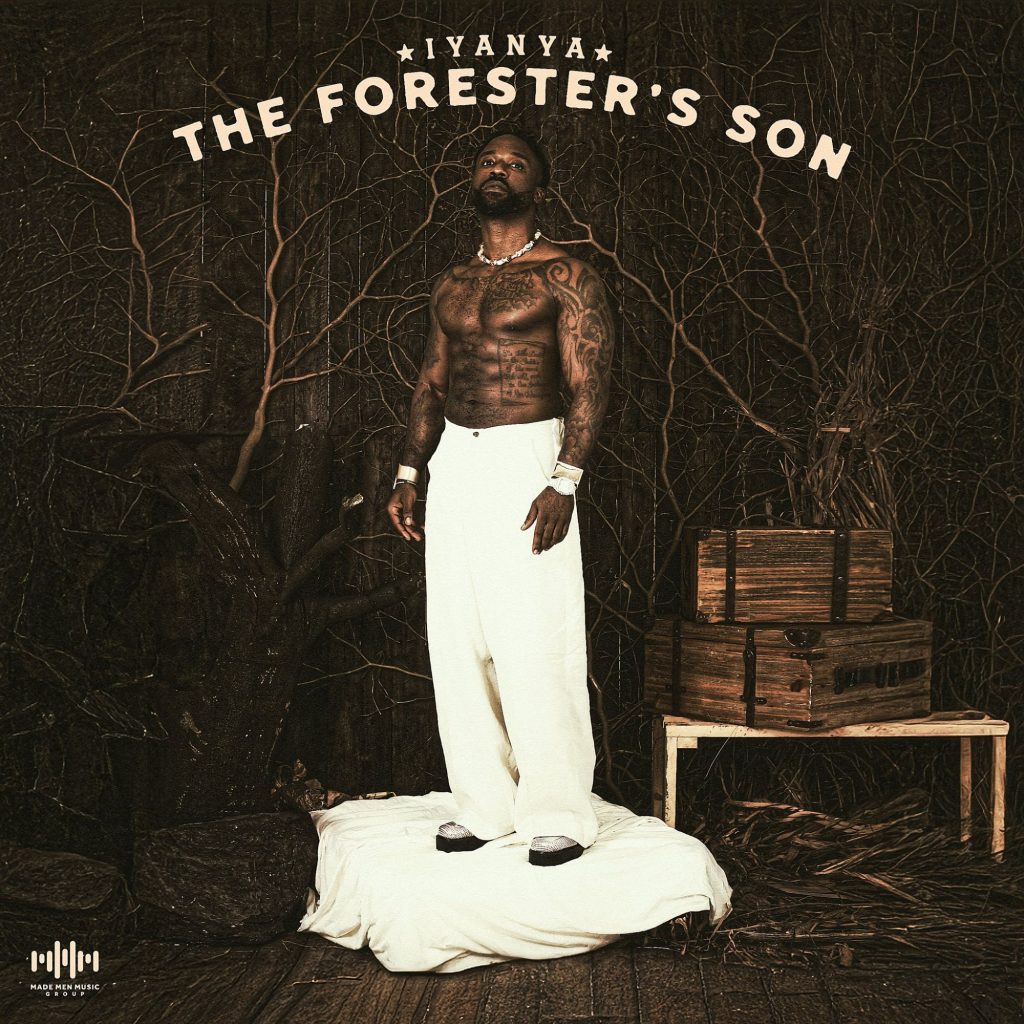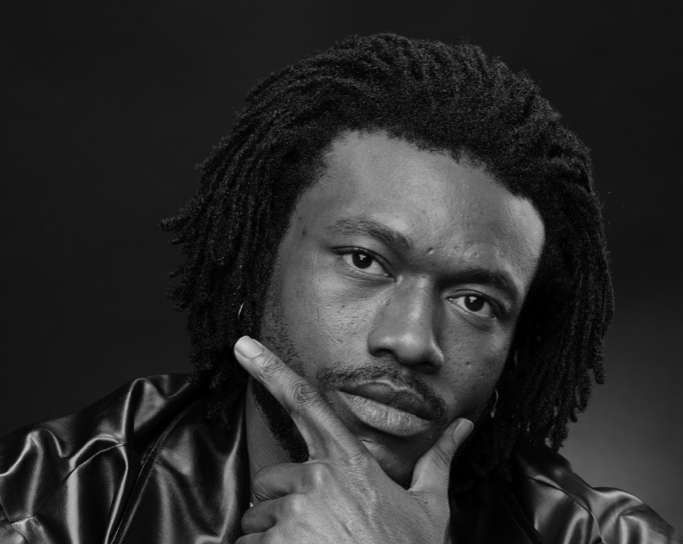On his 10th studio album, Ibejii curates an immersive sonic experience that captures the vibrance of Lagos.

The album intro sets the ambience of the LP, introducing the listeners to the soundscape in the form of a radio jingle over the overlapping of various noises that defines Lagos traffic in motion. Makoko is rich in airy flutes, Highlife synths and triumphant trumpet horns. Ibejii sings about the spirit of perseverance that is imbibed in the spirit of every hustler in the metropolitan city, attesting to the fact that Lagos is only as dogged and tough, as its people.
Dosunmu is much tamer in production compared to Makoko, but it retains its heavy African percussion and native crowd vocals. On the song, Ibejii laments about the burden that comes with living in the most chaotic city of the nation and the numerous unpleasant conformations that come with the territory, which borders on cultural erasure. Pen Cinema is named after the now defunct theater in Agege, that’s now a major bus stop. Perhaps Ibejii uses the title as an allegory to emphasize how timeless Love is, even when it’s out of time and style.
Idi Araba dials the tempo down a notch but the prominent sonic elements that preceded the track remain. Ibejii sings about a love interest who is adorned in the most flamboyant of attires and has so much gravitas, that when she “sways like a Butterfly” the whole room watches. On Itafaaji, Ibejii seeks out a good time to soothe his stress. Like most people, his first resort to easing his pain is food and he visits a Mama Put to that effect, while also imploring his guys to tag along.
Moody piano notes infiltrate the album’s instrumental make up of flutes and trumpet horns on Adekunle which is befitting for a ballad. Ibejii indulges in some well earned self-adulation on the track, which is a pivotal coping mechanism in the brutally unhinged metropolis. Lagos is cutthroat enough to snuff out the lights of the most charismatic and energetic people, so it’s crucial to always take a step back and commend oneself for effort well put in, irrespective of the outcome.

Eko Wenjele captures the essence of falling in love and reveling in cheap thrills. In a city where every commodity is overpriced, love cannot be mistaken for something else because it’s genuine and real even when you and your lover can’t afford exquisite luxury. Detty December is an interlude about enjoying the nightlife, but the title is a waste because the festivities that define said period go much further than having a great night.
Ibejii uses some very tasteful words to describe his woman’s imperfections and how he loves her in spite of them all on Jibowu. However, he iterates he’s far from perfect too and hints that he has worse habits than she does, so he’s not one to judge. Ibejii closes the album out on a celebratory note on Ijaiye and sings that he would strive to enjoy life even if he isn’t financially buoyant—a full circle moment from the album opener, where he sang about the hustler spirit and the significance of money.
Ibejii’s Lagos Shuffle is great atmospheric music. Despite the title, it doesn’t restrict itself to native Lagos sounds alone and in particular moments—it manages to capture the affable spirit of the metropolitan city, however it doesn’t try to be more than that and is simply content with being good ambient music.





